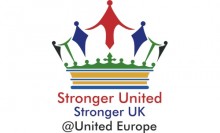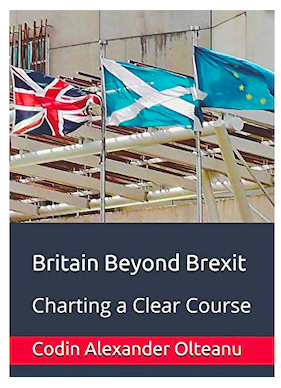Regaining full control of our borders is one of the mantras of Team Farage and Team Cameron. They both strongly assert that this is absolutely necessary for the survival and security of United Kingdom. The UKIP and their Tory Eurosceptic enablers claim that this can only happen if we leave the EU.
We are entitled to wonder how David Cameron intends to play out of this “best of both worlds” game where he intends at the same time to take advantage of ongoing European member states’ initiatives to protect themselves from outside threats and create all the tools and instruments necessary to seal shut the EU’s external borders against migrants and against the terrorists they claim are infiltrated in their midst, whilst resolutely refusing to share the commitments and burdens required to deal with the humanitarian crisis the entire continent now faces.
David Cameron has negotiated an opt-out clause that exempts the UK from participating in any internal security and home affairs arrangements with the European Union unless his government explicitly chooses to do so. He has also adopted a very contradictory stand with regards to the needs of cooperation with our European partners in these matters.
David Cameron press conference in Vienna, Austria, 26 November 2015. Source: International Business Times, 27 November 2015
On the other hand he has agreed that European Union’s 28 member states must work together in order to set up more effective European level intelligence and security mechanisms to detect threats to our cities before they happen and to prevent further inflows of refugees. At the same time just as the European Union has recently decided to set up a centralized EU refugee identification and distribution system designed to streamline the processing of refugee claimants coming into the EU and to evenly distribute the burden of their socialisation and support among all member states, David Cameron declared that the UK will not take part in such a system and will continue to have its own independent policies and procedures in this matter.
This pales in comparison with the possible consequences of a Brexit. For example, French President François Hollande has clearly stated that the bilateral agreement between Britain and France to keep migrants at Calais rather than allowing them to cross the channel to to Britain may no longer be enforced in such a case and that the Jungle camp his security forces just dismantled in Sangatte may well reappear, this time in Kent, around Dover and Folkestone, and become the responsibility of the British government and security forces. Without EU interagency cooperation in the intelligence, policing, and border security fields the United Kingdom have to invest more in both human and financial resources in order to achieve inferior results. Rob Wainwright, head of Europol, EU's law enforcement agency, expanded recently on his agency's statement that nine out of every 10 asylum-seekers arriving in Europe have their travel facilitated by a criminal smuggling network: “If you take that infrastructure that they (the British police) have helped to design over the last forty years, if you take that away, then it would make the UK’s job harder, i think, to protect the citizens from the threat of terrorism”. In addition, as terrorist organisations like ISIS reputedly are increasing their current efforts to trigger major terrorist events across Europe and especially in the United Kingdom, such lack of European cooperation would blunt any forward defence efforts, and any prevention operations of their activities would be dangerously weakened. In addition, within the United Kingdom the severe cuts that have already bitten in the budgets of police forces across the country are already limiting their ability to monitor the groups and individuals that might be associated with these groups across real and virtual networks and be ready, willing, and able to assist them in carrying out their criminal threats.
When desperate individuals – men, women, and children - are willing to walk from Kandahar to Calais in search of safety and a better life, it is illusory to think that they will be stopped for long by the Channel waters from reaching the British coast. What will we do once France stops cooperating with us and we detect boats full of refugees closing in on the waters in front of our coast? Short of sinking them we will have to find a way of dealing with their human cargo in one way or the other. The Channel Islands may well become vast refugee camps run by British security forces filled with angry and restless individuals demanding respect for their dignity and their human rights. Australia's experience in this respect should be edifying – and we should expect the same international opprobrium and criticism the Australians have faced for their policies violating international treaties and standards of conduct. This is something that we in Britain cannot afford – financially, operationally, and most importantly morally.

